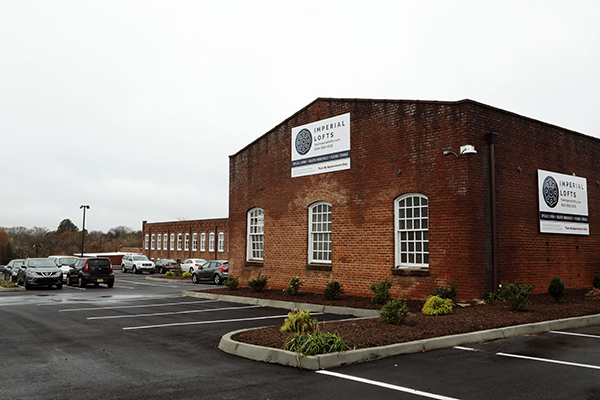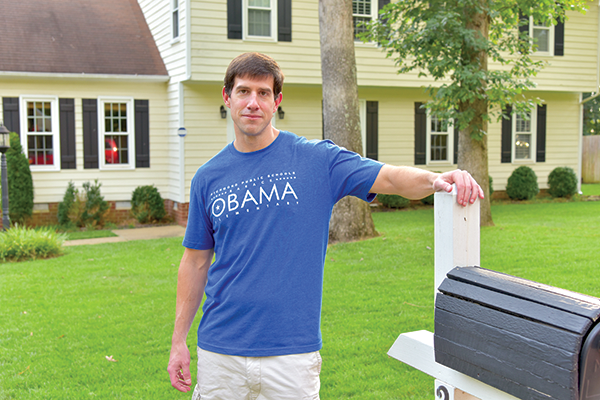The #MeToo movement has many businesses taking a harder look at their insurance policies.
Headlines about sexual assault and harassment have prompted scrutiny of coverage in areas such as employment practices liability, general liability, and directors and officers liability.
“What we saw play out in Washington during the Brett Kavanaugh confirmation is a continuation of the #MeToo movement,” says David Schaefer, president and CEO of the insurance brokerage AHT in Leesburg. “There are a lot of claims activity associated with harassment and discrimination, especially sexual harassment. We are seeing lots of very old stuff bubbling up that is just coming to light.”
In Senate confirmation hearings in September, California psychology professor Christine Blasey Ford accused Supreme Court nominee Kavanaugh of sexually assaulting her when they were both teenagers in 1982. Kavanaugh vehemently denied the accusation. He ultimately was confirmed on a 50-48 Senate vote after the FBI failed to turn up corroborating evidence of the assault.
Schaefer is noticing a marked uptick in losses from schools, churches, social service organizations and associations related to past events that were not reported at the time. “What’s interesting is, because it happened a long time ago, sometimes the policies that would be responsive to the losses are ancient history,” he says. “It requires forensic research.”
Schaefer notes the type of insurance coverage involved in these incidents depends on when and how they happened. “It could be general liability, directors and officers or employment practices,” he says. “Companies are really thinking about that.”
The Equal Employment Opportunity Commission has filed significantly more sexual harassment lawsuits in fiscal year 2018, according to preliminary data. During the fiscal year, the commission filed 66 harassment lawsuits, including 41 that included allegations of sexual harassment. That number represented a 50 percent increase in sexual harassment suits from fiscal year 2017. In addition, charges filed with the EEOC alleging sexual harassment increased by more than 12 percent during the same time period.
Overall, the EEOC recovered nearly $70 million for the victims of sexual harassment through litigation and administrative enforcement in FY 2018, up from $47.5 million in FY 2017.
The #MeToo movement gained national momentum after The New York Times and The New Yorker reported sexual abuse allegations against film producer Harvey Weinstein in October 2017. Within a month, 80 women came forward with accusations against Weinstein, who was fired from The Weinstein Co. and expelled from the Academy of Motion Pictures Arts and Sciences.
Weinstein’s downfall prompted a wave of allegations against many other Hollywood power brokers. “The revelations of what led to the fall of Harvey Weinstein and ultimately his production company dramatically increased the scrutiny of entertainment companies regarding this type of behavior, and it seems there has been more behavior that has led to claims here as premiums have gone up dramatically for this industry segment,” says Schaefer.
The #MeToo movement also has led to new legislation addressing workplace issues. In May, for example, New York Mayor Bill de Blasio signed the Stop Sexual Harassment in NYC Act, which extends the statute of limitations for filing claims related to sexual harassment from one year to three years.
In September, California Gov. Jerry Brown signed into law legislation requiring publicly held companies to have at least one woman on each board of directors by the end of next year.
In a broader picture, 2018 has been a relatively stable year for the insurance industry.
“Up to this point in 2018, it’s a continuation of 2017,” says Curt Hodges, vice president of Lynchburg-based Scott Insurance. “It’s been generally a buyer’s market for the most part with specific lines of businesses presenting challenges.”
Rates are generally down or flat in casualty lines, such as general liability and workers’ compensation. Nonetheless, the industry has seen some property insurance rate increases in areas exposed to hurricanes and high winds. The amount of increase varies and is specific to the policy.
One of the biggest challenges this year has been commercial auto insurance. “Commercial auto insurance continues to be a problem, with a continuing push [by insurers] for higher rates,” says Paul Fleming, senior vice president with Richmond-based Bankers Insurance.
Most insurance carriers are asking for single- to low-double-digit rate increases in auto coverage this year. A variety of factors are contributing to the higher rates, including distracted drivers and the higher cost of repairs because of “new technology being put into cars and trucks,” says Hodges.
Fleming expects workers’ compensation may be the next area to see marked increases in rates. “Workers’ comp rates continue to decrease, and health-care costs keep going up,” he says. “The losses will catch up. It’s just a question of when. I wouldn’t be surprised if it starts happening in a year or two.”
Cyber liability continues to be a hot market for the industry. “We are also seeing insurance companies that had not provided coverage previously are now starting to participate,” says Rusty Bailey, division manager for Hampton Roads for Marsh & McLennan Agency.
Rates continue to inch upward for cyber liability because of an increased number of losses. “We are seeing an average of a 2.1 percent increase in cyber liability rates across the board,” Bailey says. “We are also seeing more claims on cyber.”
Brokers say businesses need to understand what they can and can’t ask for in cyber coverage. “It’s important to have someone that understands cyber and the risks in order to provide the proper coverage,” Bailey says. “We have an area of expertise, a dedicated line for cyber. That is all they do.”
Germany-based reinsurance company Munich Re estimates the cyber insurance market will double by 2020 to more than $8 billion, partly because of risks such as data theft. “More people are buying the coverage, but it’s still not enough,” says Fleming. “We are seeing a lot of ransomware. You can purchase coverage for that as part of a cyber policy. The need for coverage is going to increase as the years go by.”
In another sign of the times, some educational and religious institutions are inquiring about insurance related to shootings. “They are asking about an active-shooter policy,” says Fleming. “It can cover the cost of counseling services, crisis management, public relations, reward money, financial losses and third-party claims. I’m not seeing a bunch of people purchasing it, but there is an increased awareness.”
Another area of concern is flood insurance. For the past 50 years the National Flood Insurance Program has provided coverage, but more insurance companies are moving into that space. The Flood Insurance Market Parity and Modernization Act, passed by the House of Representatives in 2016, would amend the Flood Disaster Protection Act of 1973 to revise requirements for federal and private flood insurance. Supporters say the law will foster more competition in the marketplace and bring prices down.
The bill now is in the hands of the Senate Committee on Banking, Housing, and Urban Affairs. If there is no movement on the bill before the end of the year, it will die in the Senate committee. “Insurance companies are assuming the risk rather than the government,” Fleming says. “There are more options out there for private placement flood insurance than there were in the past.”
Insurance brokers
| Insurance broker | Location | Phone | Website | Agents in Va. | Va. revenues ($000)1 | |
|---|---|---|---|---|---|---|
| 1 | BB&T Insurance Services | Richmond | (804) 359-0044 | bbandt.com | 125 | 90,046,843 |
| 2 | Scott Insurance | Lynchburg | (434) 832-2100 | scottins.com | 180 | 58,000,000 |
| 3 | Marsh & McLennan Agency LLC | Richmond | (804) 780-0611 | mma-midatlantic.com | 312 | 57,310,673 |
| 4 | Towne Insurance | Virginia Beach | (800) 486-4611 | towneinsurance.com | 55 | 41,150,506 |
| 5 | Bankers Insurance LLC | Glen Allen | (804) 497-3634 | bankersinsurance.net | 64 | 35,000,000 |
| 6 | AHT Insurance | Leesburg | (703) 777-2341 | ahtins.com | 98 | 18,678,611 |
| 7 | Aon Risk Services South | Richmond | (804) 560-2230 | aon.com | 25 | 17,000,000 |
| 8 | AssuredPartners | Richmond | (804) 355-7984 | assuredpartners.com | 12 | 6,200,000 |
| 8 | Lunsford – a Trustpoint Company | Roanoke | (540) 982-0200 | chaslunsford.com | 23 | 4,000,000 |
| 10 | Ames & Gough Insurance/Risk Management Inc. | McLean | (703) 827-2277 | amesgough.com/ | 23 | 3,500,000 |
1 For 2017 Note: List first published in March 2018. Source: Individual firms.


 The town partnered with developer Edwin Gaskin of Echelon Resources Inc. to develop market-rate apartments in the 135,000-square-foot former Tultex Building, now called Imperial Lofts. The developer has already built 42 apartments that rent from $800 to $1,100 in about 70,000 square feet of the space.
The town partnered with developer Edwin Gaskin of Echelon Resources Inc. to develop market-rate apartments in the 135,000-square-foot former Tultex Building, now called Imperial Lofts. The developer has already built 42 apartments that rent from $800 to $1,100 in about 70,000 square feet of the space. “This year we have rolled out JusticeServer 2.0, which is the next generation to improve performance,” says Harry M. “Pete” Johnson III, a Hunton Andrews Kurth partner who was a member of the committee that organized the 2010 Pro Bono Summit.
“This year we have rolled out JusticeServer 2.0, which is the next generation to improve performance,” says Harry M. “Pete” Johnson III, a Hunton Andrews Kurth partner who was a member of the committee that organized the 2010 Pro Bono Summit. “We support veterans and service members in all branches of the military, including activated National Guard members and reservists,” says attorney Bob Barrett, chair of the task force. “We take a broad approach.”
“We support veterans and service members in all branches of the military, including activated National Guard members and reservists,” says attorney Bob Barrett, chair of the task force. “We take a broad approach.”